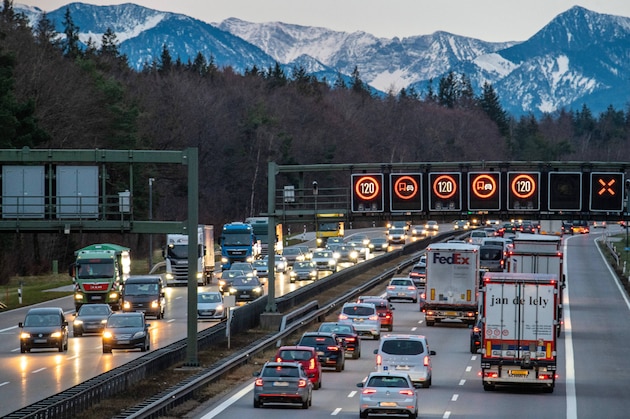For the CDU member of the Bundestag, Christoph Ploß, the debate about a speed limit on German autobahns is purely symbolic. He no longer needs bans, but rather climate-friendly innovations that make our motorways safer and climate-neutral.
What can we do to achieve our climate protection goals? Many people in Germany ask themselves this question. We as the CDU/CSU parliamentary group are also dealing with this intensively. Germany needs up-to-date and effective measures to reduce CO₂ emissions. An unsuitable proposal to save the global climate is repeatedly thrown out of the mothball box from the political left spectrum: the introduction of a general speed limit on motorways. According to the Greens and other left-wing politicians, the Germans should be slowed down in the truest sense of the word.
Let’s look at the numbers objectively: the introduction of a general speed limit of 130 kilometers per hour would save only 0.28 percent CO₂ per year in Germany, worldwide that would be 0.0051 percent! The introduction of a speed limit has almost no impact on the global climate. It’s all about symbolic politics!
And at what price? Once again, a piece of freedom would be taken away from people in the name of the climate. Once again, millions are being bullied every day in the name of the climate. A feeling that Green politicians are already encouraging with debates about bans on air travel, single-family homes in new development areas or meat dishes in the canteen. The acceptance of really sensible climate protection measures would decrease. Greetings from France’s yellow vests. Some advocates of a general speed limit on motorways do not argue with more climate protection, but with more safety.
That would be a powerful argument if Tempo 130 actually meant more road safety. However, there is no evidence that a general speed limit on all motorways increases safety. Incidentally, the German autobahns have become safer and safer under the Union-led federal governments. Measures such as intelligent traffic control or targeted speed limits at accident black spots have contributed to this.
By 2021, the number of road deaths will have fallen to an all-time low. States that have a general speed limit often have to count more traffic deaths than Germany – such as Bulgaria, Portugal or Croatia. The German autobahns are among the safest roads in the world without a speed limit.
In order to further reduce the number of road deaths, we need investments in infrastructure – also to create the conditions for autonomous driving. Because autonomous driving can help to ensure that there will be fewer road deaths in the future and CO₂ emissions will be reduced. We would be wise to engage with such innovations rather than start pointless arguments about a speed limit. The federal government has major problems in achieving the climate targets in the transport sector. This is also due to the fact that she is getting tangled up in discussions about a speed limit instead of finally allowing climate-neutral fuels, for example.
With e-fuels, millions of cars in Germany could become climate-neutral. However, e-fuels are not even allowed to be sold in this country. And instead of burning more and more climate-damaging coal, the traffic light should clear the way for climate-neutral nuclear power to continue to be used. With the continued operation of the nuclear power plants, the traffic light coalition could reliably supply more than ten million households with electricity. In view of these figures, the debate about a speed limit has become a farce.
Social market economy instead of state economy. More pragmatism instead of sham ideological debates. More digitization and investments instead of new bans: that’s what the traffic light coalition should do. This will make Germany safer, economically strong and climate-neutral – without any speed limits.
